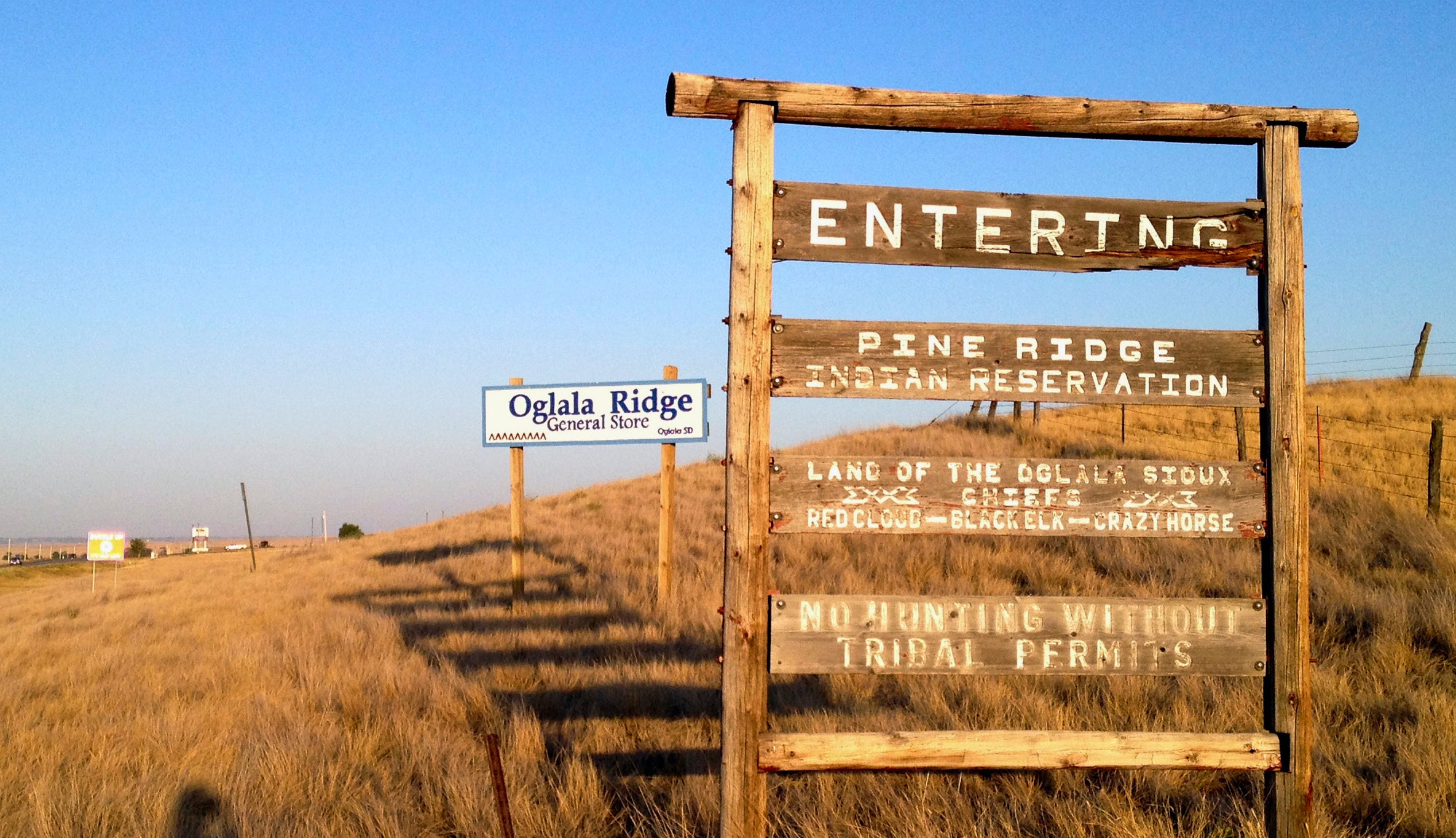Native tribe accepts Kristi Noem’s apology and lifts her banishment ahead of confirmation hearing
The governor was banned from all nine Native American reservations last year

Your support helps us to tell the story
From reproductive rights to climate change to Big Tech, The Independent is on the ground when the story is developing. Whether it's investigating the financials of Elon Musk's pro-Trump PAC or producing our latest documentary, 'The A Word', which shines a light on the American women fighting for reproductive rights, we know how important it is to parse out the facts from the messaging.
At such a critical moment in US history, we need reporters on the ground. Your donation allows us to keep sending journalists to speak to both sides of the story.
The Independent is trusted by Americans across the entire political spectrum. And unlike many other quality news outlets, we choose not to lock Americans out of our reporting and analysis with paywalls. We believe quality journalism should be available to everyone, paid for by those who can afford it.
Your support makes all the difference.A year after all native tribes in South Dakota banned Republican Governor Kristi Noem from their reservations, one is welcoming her back with open arms.
On Tuesday, the Flandreau Santee Sioux Tribe voted to rescind Noem’s “banishment,” which reservation leaders passed in May. The governor has been tapped as President-elect Donald Trump’s pick for secretary of the U.S. Department of Homeland Security and her confirmation hearing is scheduled for Friday.
“I wish you the best of luck during the Senate confirmation hearing on January 17, 2025, and believe that your dedication to the safety and security of the United States will benefit us all,” President of the Flandreau Santee Sioux Tribe Anthony Reider wrote to Noem in a letter after the vote.
The tribe has an estimated enrollment of 736 members.
Noem was banned from entering nine South Dakota reservations last year after she made comments suggesting tribal leaders benefitted from cartel activity in the state.
“We’ve got some tribal leaders that I believe are personally benefiting from the cartels being there, and that’s why they attack me every day,” Noem said during a March forum. “But I’m going to fight for the people who actually live in those situations, who call me and text me every day and say, ‘Please, dear governor, please come help us in Pine Ridge. We are scared.’”

Noem also made comments regarding the future of native children’s lives.
“Their kids don’t have any hope,” Noem said about children on reservations. “They don’t have parents who show up and help them.”
The Flandreau Santee Sioux Tribe was the last to ban Noem. When the resolution passed, tribe officials told the governor the ban was imminent. Tribe officials requested she refrain from making future blanket statements that offend the tribes within South Dakota.
The tribe also told Noem the banishment could be resolved if she apologized for the comments “which were deemed offensive by some,” the letter states.
“In several meetings before and after the resolution was passed, you not only explained your position, but apologized if the comments offended the tribe,” Reider wrote. “You additionally sought advice on how to phrase such communications moving forward, which the tribe and I appreciate.”
In an emailed statement to The Independent, a representative for Noem said: “The Flandreau Santee Sioux Tribe recognizes that Governor Noem will make America safe again as Secretary of Homeland Security. We appreciate their support and will continue working with them to make all of our communities safer, stronger, and freer.”
Noem is still banned from the remaining tribes, which are the Cheyenne River Sioux Tribe, Crow Creek Sioux Tribe, Lower Brule Sioux Tribe, Oglala Sioux Tribe, Rosebud Sioux Tribe, Sisseton Wahpeton Oyate, Standing Rock Sioux Tribe and Yankton Sioux Tribe. Together, the tribes make up of thousands of members.
More than 12 percent of the state is a reservation or land trust.
Join our commenting forum
Join thought-provoking conversations, follow other Independent readers and see their replies
0Comments